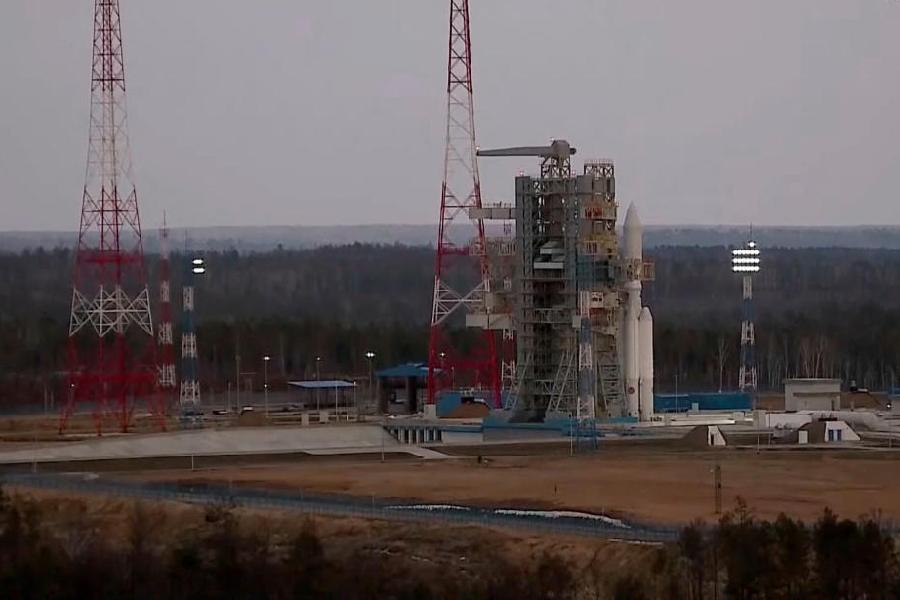The test launch of Russia's Angara-A5 rocket from the Vostochny Cosmodrome was aborted on Wednesday for the second time this week.
"The command to cancel the launch has been issued," said an announcement made through loudspeakers mere seconds before takeoff at the launch site in Russia's Far East.
It was not immediately clear why.
On Tuesday, an issue with the pressurising system of the rocket's oxidiser tank forced a last-minute cancellation of the launch. It was delayed by 24 hours.
The two aborted launches are yet another setback in a project that has been dogged by manufacturing delays and technical issues.
President Vladimir Putin has grand ambitions for Russia's space program, including planned construction of a new Russian space station by 2027, and has described the Angara project as having huge significance for national security.
The launch was set to be the first for this type of rocket at Russia's new launch site at the Vostochny Cosmodrome, located in the forests of the Amur region in Russia's Far East.
The 42.7-metre Angara launch vehicle is capable of carrying payloads bigger than 20 tonnes into orbit.
Due to its location closer to the equator, Angara-A5 can deliver a heavier payload to orbit if launched from Vostochny, Russia's first and only post-Soviet spacecraft launch site, than from Plesetsk, an Soviet-era facility where it has had three successful test launches of the Angara rocket.
The setback follows the failure of a Russian moon mission last August, its first in 47 years, when the spacecraft crashed into the moon.











